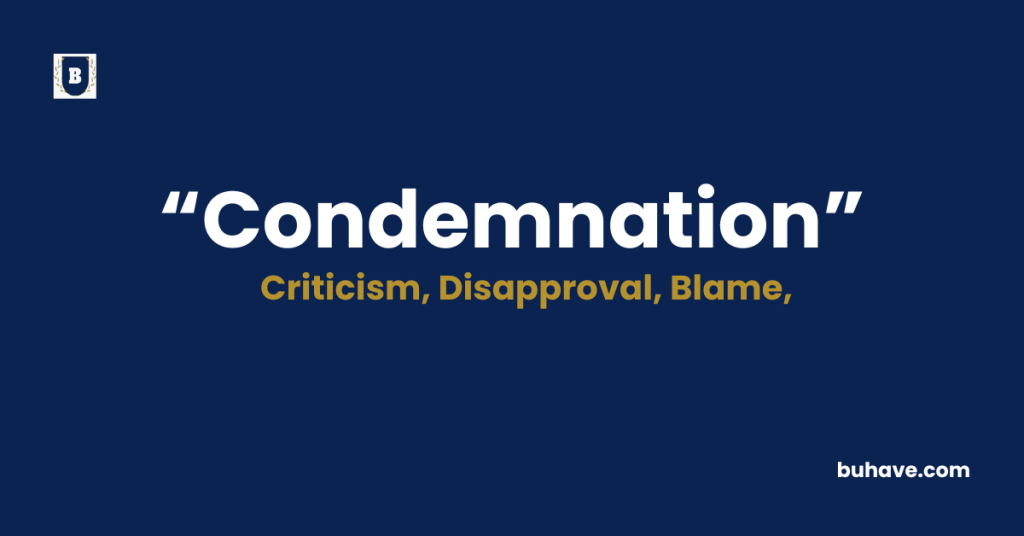The word ‘Condemnation’ (Noun) refers to the act of expressing strong disapproval, criticism, or blaming someone or something for wrongdoing. It often involves moral judgment and can carry legal, emotional, or social consequences. In this guide, you’ll explore the full meaning, origin, and proper usage of ‘Condemnation’ in everyday and formal contexts.
Condemnation Explained in Depth
A complete and detailed guide to the word ‘Condemnation’ including meaning, definition, examples, etymology, synonyms, and antonyms.
Meanings of Condemnation
‘Condemnation’ means the act of declaring something to be wrong, evil, or unacceptable. It can refer to public censure, moral disapproval, or a legal judgment against someone or something.
Definition
‘Condemnation’ is defined as the expression of strong disapproval; pronouncing someone or something as blameworthy, especially in a serious, formal, or public way.
Etymology
The word “Condemnation” comes from Latin condemnatio, meaning “a sentencing” or “conviction,” derived from condemnare — “to sentence, blame, or disapprove.” It entered English through Old French in the Middle Ages.
Example Sentences
- The mayor issued a statement of condemnation against the violent protests.
- Her actions drew widespread condemnation from both the media and the public.
- The court’s condemnation of the corrupt official led to a long prison sentence.
Condemnation Synonyms
- Denunciation
- Censure
- Rebuke
- Criticism
- Blame
- Disapproval
- Reproach
- Reprimand
- Judgment
- Conviction
Condemnation Antonyms
- Praise
- Approval
- Endorsement
- Support
- Acceptance
- Compliment
- Acquittal
- Recognition
- Commendation
- Sanction
FAQs about Condemnation
Here are some frequently asked questions (FAQs) about the word “Condemnation”
1. What does “condemnation” actually mean?
“Condemnation” is the act of expressing strong disapproval or declaring someone or something to be wrong or guilty.
2. Is condemnation always negative?
Yes, it typically involves negative judgment, criticism, or punishment, either morally, socially, or legally.
3. How is condemnation used in law?
In legal contexts, “condemnation” can refer to a formal conviction or to the government taking private property for public use.
4. Is condemnation different from criticism?
Yes. Criticism can be mild or constructive, while condemnation is usually harsh, absolute, and disapproving.
5. Can a person self-condemn?
Yes. People often experience self-condemnation when they feel deep guilt or shame about their actions.

















